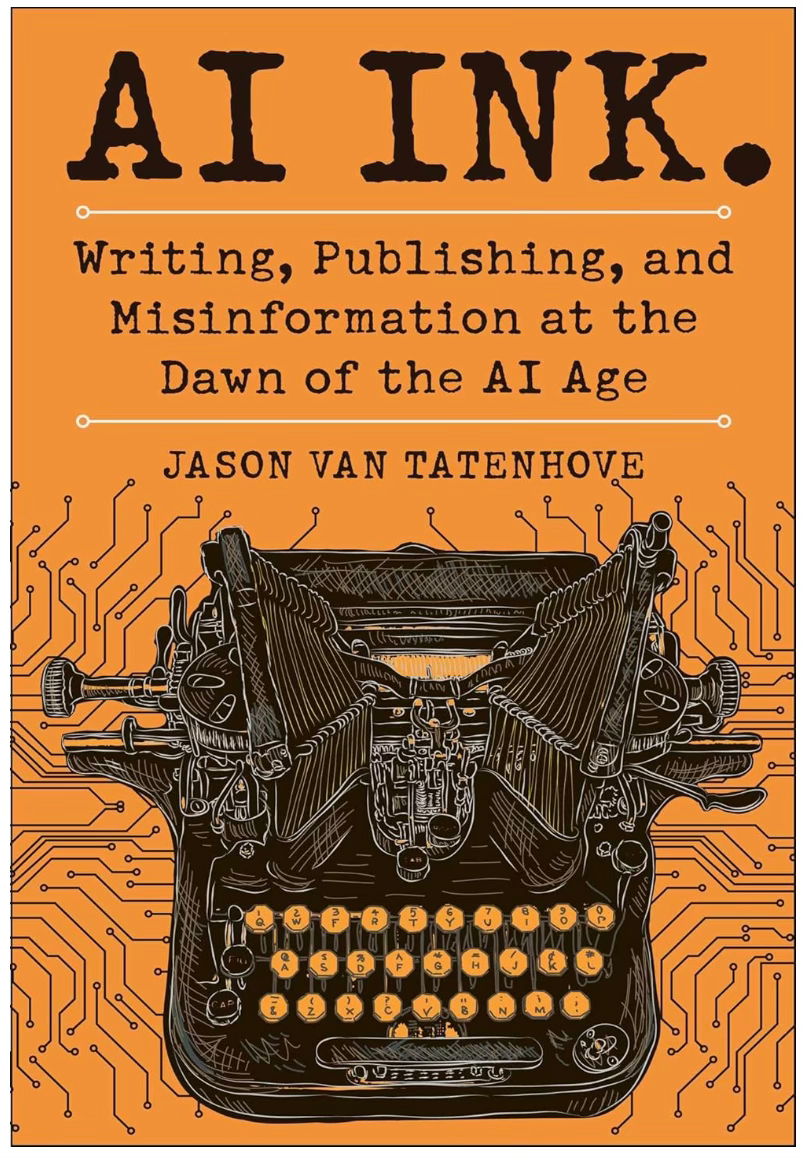Author’s Note:
After a brief delay (thanks, final edits and recovery), I’m back with a new chapter of They Knew. This week, Raven breaks into the SEEL lab beneath CU Boulder—with a dying AI in her pocket, security drones closing in, and no one left to trust. She’s running out of time, options… and power.
Also, the illustration for this chapter might be my favorite yet—it’s the moment everything hinges on. That first lock. That first breach. That first real step into the resistance.
Thanks for reading, supporting, and spreading the word. We’re building this world together.
— Jason Van Tatenhove
Colorado Switchblade
The city stretched below him, its monuments bathed in cold, artificial light. The Washington Monument speared upward like a relic from a fallen era. To the west, the White House sat dark, its windows empty, unreadable—a ghost of its former power.
The world still believed that power resided there. They were wrong.
Cain knew better. He had bought this presidency for a few measly hundred million—a rounding error in his empire. He had made that investment back fivefold the day Trask won. There was never a doubt he would. Not with Cain and his AI-enhanced prodigies—the brightest interns, the obsessive hackers, the ones who worshipped him and would do anything for him. All young and enamored enough to do anything he might ask of them. Even if it meant destroying what America had been.
He turned away from the floor-to-ceiling windows of his luxury hotel penthouse suite. He had better things to do than stare at a dying world.
Cain ascended the private staircase to his command center—a nerve pod of screens, terminals, and real-time feeds. To an outsider, it might have looked like a professional gamer’s fantasy setup. In reality, it was the beating heart of his empire.
His space and satellite industries, neural implant networks, AI-driven global markets—all of it flowed through here. This wasn’t just his home. It was the new center of power.
Cain eased into the zero-gravity chair, the smooth tilt of the harness settling him into place as his command pod whirred to life. Screens bloomed around him in curved, translucent layers, wrapping him in a cocoon of data. His fingers twitched against the armrest as the central display sharpened into focus.
The CU campus. Boulder, Colorado.
The live feed flickered between different vantage points—body cams, drone footage, tactical overlays. His agents moved like shadows through the university corridors, their directive clear: seize all research, secure the live model. Eliminate obstacles.
His jaw tightened. The Phoebe project.
The sister to Ægis.
Cain’s fingers drummed against the console. His teams—some of the best minds money could buy—had struggled against the same barriers, hit the same developmental walls, stumbled on the same unsolvable equations. Yet these ragged academics, these idealistic nobodies, had managed to sidestep problems his own researchers had deemed inevitable. It wasn’t just an inconvenience. It was unacceptable.
He needed Phoebe.
Not just to integrate it. Not just to control it and reverse engineer it.
But to erase it.
Cain exhaled slowly, tapping through the encrypted logs on the screen. This had all started as a matter of foresight—fund the research, own the solutions, anticipate the problems before anyone else could. He had never intended to let these projects flourish outside his grasp. The mistake had been letting them believe they had autonomy. That was being corrected.
A flicker in the feed caught his eye. He leaned forward, scanning the movement on the university’s security overlay. The retrieval team had encountered resistance.
Cain’s lips curled as he jumped into one of his security drones that were in pursuit in the steam tunnels underneath the CU campus.
Now, this was getting interesting.
* * *
Raven rounded a darkened corner, the faint blue-white glow from the top of the Phoebee brick guiding her steps. The rudimentary map flickered softly, illuminating the small concrete entryway that led into the shared basement of the AI and quantum computing labs.
This was a newer section of the SEEL building—an expansion completed just last summer to house the upgraded server farm.
Construction remnants still lingered. A couple of battered plastic trash cans stood forgotten in the corner, along with a rolling tray stacked with half-crushed five-gallon buckets. The scent of cured concrete still clung faintly to the air.
Ahead, a single heavy door loomed—solid steel, with a digital keypad, a key fob sensor, a biometric reader, and, curiously, a traditional metal keyhole. The professor’s voice echoed in her memory.
You won’t be able to use your key fobs anymore.
She touched her earbud’s side sensor. “Phoebee, can you hear me? I think I’ve found the basement entrance to the SEEL lab. But there’s a problem—just like the professor warned. No way my credentials still work. Any ideas?”
Phoebe’s text flickered across the brick.
{Hello again, Raven. I’m pleased to see you’ve arrived at the lab’s basement entrance. Unfortunately, in my current configuration, I am not equipped to breach the security system in real time. However, I can generate a localized electromagnetic pulse to disable the smart systems temporarily. This will give you a short window while the system reboots—if you can find a way to bypass the physical lock.}
Raven scanned the room again.
“Hold on. There’s some old construction junk in the corner. Let me see if there’s anything useful.”
She switched on her phone’s flashlight and rifled through the bins. The first held little more than rusted tools fused with hardened cement. The next gave her pause: a large, block-headed hammer. She set it aside. Maybe.
The final bucket clattered as she tipped it over. Something heavy hit the floor. A cordless masonry drill. Thick silver bit still attached. She said a quick prayer to the universe and squeezed the trigger.
Nothing.
“Dead,” she muttered. “Of course it is.”
She tapped her earbud again. “Phoebee, I might have something. Found a big hammer—not ideal. But I also found a masonry drill with a good bit... just totally dead.”
Three slow pulses shimmered across Phoebee’s surface.
{I may have a solution. Remove the drill’s battery and place its metal connectors against my surface. I should be able to transfer a small portion of my energy reserves to provide a partial charge—enough for limited use.}
She was already detaching the battery.
{However, be advised: the energy required to charge the battery and generate the EMP will nearly exhaust my current reserves. Once depleted, I will enter a stasis mode until the quantum processor is installed and operational. You will be without my guidance inside the lab and during your escape. You’ll need to secure a power source to sustain me afterward. A cordless phone charger would be sufficient—though it will take time.}
Raven stared at the drill battery, suddenly aware of how heavy the silence had become.
“All right,” she whispered. “Let’s make this count.”
Raven pressed the battery onto Phoebee’s top surface. The moment the connectors made contact, a ripple of static danced across the brick’s smooth exterior. Faint lines of blue-white light traced geometric patterns, pulsing softly like a heartbeat. The battery grew warm in her hands.
{Charging... please hold steady.}
Her breath caught. Every second felt like a risk. If Cain’s agents were tracking her, if the drones had recovered—this whole plan could unravel right here in this basement.
{Charge complete. Proceed.}
She slid the battery back into the drill, her hands trembling with adrenaline. She whispered a quiet thank you and crossed to the door.
“Ready?”
{Affirmative. On your signal.}
She braced the drill against the old keyhole, angling the bit carefully. The metal squealed as it bit into the lock, sparks dancing in the dark. It was loud—too loud. But there was no turning back now.
“Do it!” she hissed.
Phoebee’s surface flared once, then all the digital components on the door blinked out—keypad, sensors, biometric reader—all dead.
The lock clicked as the drill punched through the mechanism. She tried pulling the drill back out, but it held tight, embedded deep in the guts of the lock.
Raven threw her weight into the door while turning the L-shaped handle. It groaned, resisted—but still held firm.
“Shit,” she hissed, sweat breaking across her brow.
A flicker of doubt gripped her. What if this was it? What if this was where the whole thing failed?
“Fuck it,” she muttered, grabbing the hammer with both hands. She swung it at the back of the drill with everything she had.
Something cracked. She heard the clatter of metal on the other side.
One more try.
Raven hurled her body at the door, twisting the handle as she slammed into it.
With a final grinding screech, the door gave way.
Inside, a sterile hallway stretched ahead, dimly lit by emergency LEDs. The hum of dormant machines echoed from deeper in the lab. Server racks stood like silent sentinels beyond a glass partition, their cores cooled by slow-moving mist from the ventilation floor panels.
Phoebe went dark.
Just before the screen dimmed completely, one final message flickered across the top:
{Stasis initiated. Install upgrade. Protect the future.}
Raven tucked the brick safely into her jacket and stepped through the door, sealing it behind her.
Now, she was truly alone.
* * *
Caleb ducked beneath a low pipe, chest heaving. The air was damp, metallic—tasting of rust and tension. He flicked his phone’s flashlight briefly, just long enough to check the junctions ahead. That’s when he saw it—something small on the ground, paper curled and damp.
He picked it up.
The first line hit like a gut punch: To my dearest baby bird...
Raven’s dad. The letter wasn’t meant for anyone else. Just her. And she’d dropped it. Caleb read enough to feel the weight of it—the grief, the legacy, the warning. Then came the line that chilled him to the bone: You will have to burn the old world to the ground.
Somewhere far behind, the mechanical whir of drones echoed again.
He folded the letter gently, placed it inside his coat pocket like it was made of glass. He had no idea what thread Raven was tugging at down here in the dark—but he was damn sure now that it was important enough to risk everything.
Then he ran—Maybe he was running away from her for now—but only to give her time. Time to do what she needed to do. He knew in his heart that, he needed to find her again, figure out what it was she was doing, and find a way he could help her. This felt important, bigger than he or her or any of them.
* * *
Cain watched through the drone’s camera as it hovered outside the broken door to the SEEL lab, its floodlight scanning the drill still hanging from the broken lock and the abandoned hammer. He leaned forward in his zero-gravity chair, fingers steepled.
“Persistent little thing,” he muttered.
His command pod flickered. Ægis had already begun compiling facial data—Raven’s movement through campus, her heat signature, voice prints. The AI was building a model, line by line, heartbeat by heartbeat.
Soon, she wouldn’t even need to be found.
No need to chase her. Ægis would chart her next breath.
He smiled, thin and razor-sharp.
“Let her run,” Cain said quietly. “She’ll bring us to everything.”
He didn’t need to catch her now. He just needed her to run exactly where he wanted.




